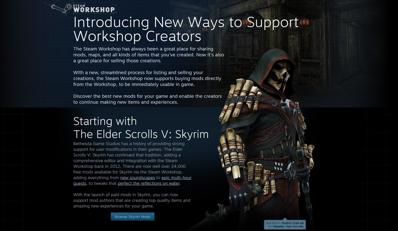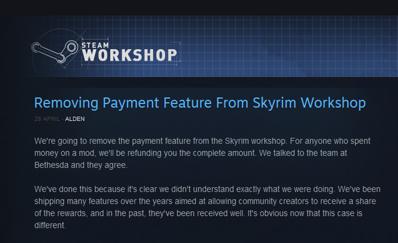
One of the biggest reasons many gamers choose the PC platform is the ability to use modifications for a better gaming experience. Recent modding controversies have gamers questioning the future of mod development.
What is Modding
Modding is the term gamers use for modifying their gaming hardware or software to function differently than how the developers intended. Some mods are based on cosmetics while others adapt to the game and play style – making gaming experience more fun and enjoyable. These mods can change the appearance of characters or objects that change the way games work. There are also silly mods that are able to create whales that drop out of the sky.
The Problems Leading up to Modding
Modding may infringe on the rights of game developers, other modders, and make payment models difficult for players. Modding has been hotly debated recently. If you have been paying attention to news in the gaming world, you’ve probably heard about the mass-ban scare in Grand Theft Auto V. Phrasing in the game’s license was a bannable offense for the game. The community lashed out on Rockstar as most players play the game on PC due to its modifiability. Rockstar later stated that modding in single-player modes will not result in any punishments. However, players who use modifications in multiplayer mode will be banned. This is mainly due to the unfair advantages a modder would have, such as additional ammunition. Prior to Rockstar’s clarification, the dispute was further fueled by Steam’s Skyrim controversy. The Steam Workshop, intended to be a marketplace for mods, maps, and items for games launched with developers offering only free modifications.

The shift to paid modifications in April launched a huge firestorm of debate over many issues surrounding modifications. While the intention was good, to pay modders for their work and hopefully spur further developments, this development opened up one of the hottest recent debates. Surprisingly, the debate was mainly focused on the avalanche of problems paying for mods creates. One of the biggest problems was that some mods include coding, graphics, or frameworks from other mods created by different developers. When the end mod gets paid while using works of another modder, the ownership and royalties of the end mod become difficult to define. It also opens up controversy around previously free modifications that draw from other franchises in gaming and media. When they became a paid service, the mods will face copyright infringement due to its usage of images of licensed characters. It is now more difficult for players to invest in modifications they love. When these mods rely on other mods to function properly, should players be forced to pay for all mods? Other arguments included that Steam’s cut of royalties was too much and penalized modders, who only receive 25% of their sales. Mods often stop working with the release of new patches and many paid mods may never update. After only three days, Valve has canceled the program. This brings up many questions about the future of modding, whether or not companies like Valve (owner of Steam) and Rockstar are getting too involved in finding ways to monetize at the cost of the modding communities.

How do you feel about mods and its recent controversies? Are there any better solutions to modding?
